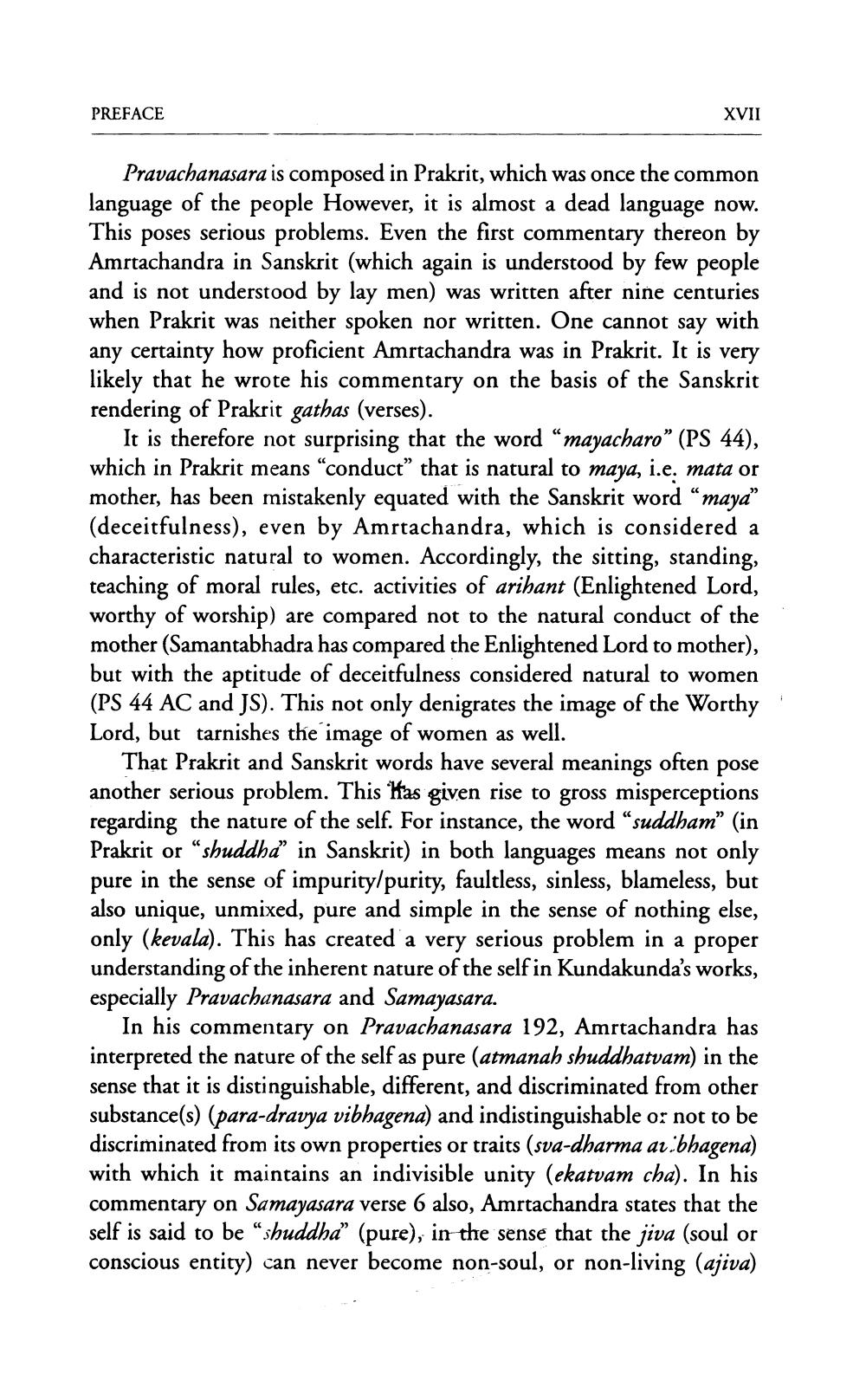________________
PREFACE
XVII
Pravachanasara is composed in Prakrit, which was once the common language of the people However, it is almost a dead language now. This poses serious problems. Even the first commentary thereon by Amrtachandra in Sanskrit (which again is understood by few people and is not understood by lay men) was written after nine centuries when Prakrit was neither spoken nor written. One cannot say with any certainty how proficient Amrtachandra was in Prakrit. It is very likely that he wrote his commentary on the basis of the Sanskrit rendering of Prakrit gathas (verses).
It is therefore not surprising that the word “mayacharo” (PS 44), which in Prakrit means “conduct” that is natural to maya, i.e. mata or mother, has been mistakenly equated with the Sanskrit word “maya" (deceitfulness), even by Amrtachandra, which is considered a characteristic natural to women. Accordingly, the sitting, standing, teaching of moral rules, etc. activities of arihant (Enlightened Lord, worthy of worship) are compared not to the natural conduct of the mother (Samantabhadra has compared the Enlightened Lord to mother), but with the aptitude of deceitfulness considered natural to women (PS 44 AC and JS). This not only denigrates the image of the Worthy Lord, but tarnishes the image of women as well.
That Prakrit and Sanskrit words have several meanings often pose another serious problem. This has given rise to gross misperceptions regarding the nature of the self. For instance, the word “suddham" (in Prakrit or “shuddha" in Sanskrit) in both languages means not only pure in the sense of impurity/purity, faultless, sinless, blameless, but also unique, unmixed, pure and simple in the sense of nothing else, only (kevala). This has created a very serious problem in a proper understanding of the inherent nature of the self in Kundakunda's works, especially Pravachanasara and Samayasara.
In his commentary on Pravachanasara 192, Amrtachandra has interpreted the nature of the self as pure (atmanah shuddhatvam) in the sense that it is distinguishable, different, and discriminated from other substance(s) (para-dravya vibhagena) and indistinguishable or not to be discriminated from its own properties or traits (sva-dharma aribhagena) with which it maintains an indivisible unity (ekatvam cha). In his commentary on Samayasara verse 6 also, Amrtachandra states that the self is said to be “shuddha" (pure), in the sense that the jiva (soul or conscious entity) can never become non-soul, or non-living (ajiva)




